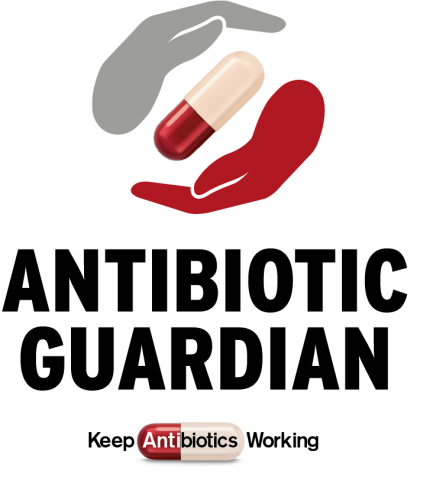We all need to play our part to keep antibiotics working

Antimicrobial resistance (AMR) remains a serious public health threat and protecting essential medicines for the future relies on all of us acting now, so this World Antimicrobial Awareness Week (18-24 November) the Public Health Agency (PHA) is asking everyone to help keep antibiotics working.
The future of antibiotics depends on all of using them properly. These essential medicines are used to treat infections caused by bacteria. It is important to remember that antibiotics do not treat infections caused by viruses.
Dr Jenny Mack, Public Health Doctor at the PHA, said: “It’s worrying that more infections are becoming resistant to these life-saving medicines. Antibiotics are not always used appropriately, and because of this, bacteria are becoming resistant. As a result, some antibiotics have become less effective against the bacterial infections they were designed to treat. Infections caused by resistant bacteria can be very difficult to tackle, can be extremely serious and may even lead to death.
“Antibiotics should not be used to prevent or treat any viral infections, including COVID-19, unless bacterial infections are also present.
“In recent years few new antibiotics have been discovered. We need to protect the antibiotics we have, to ensure they continue to work now and in the future.
“If we continue to use antibiotics at the current rate we could face a return to the days before antibiotics, when people died from simple infections and where the risk of infection made routine surgery life threatening.
“Antimicrobial resistance is a threat to you and your family’s health. But you can help by taking some simple steps.
“Only take antibiotics when they are prescribed by your doctor.
"Remember, antibiotics are not effective against viral infections, such as a cold or flu. Most simple infections such as sore throats or earaches do not need antibiotics. Your body can usually fight these infections on its own.
“There are over-the-counter medicines to help manage your symptoms.
“If you are worried that your symptoms could be COVID-19, stay at home and arrange to get tested as soon as possible. This will help determine if you have the virus and help you take the appropriate precautions to help stop the spread of the virus and protect those around you. Don’t forget the symptoms of COVID-19 are a new continuous cough, or a high temperature, or a loss or change in your sense of taste or smell. Make sure to follow all of the public health advice on COVID-19 which can be found at www.pha.site/coronavirus
“If you feel you need advice on symptoms, phone your doctor who will be able to recommend the best action to take.
“If, after a thorough consultation with your doctor in which they have assessed your situation, they prescribe an antibiotic, make sure you take it according to their instructions. It is important to complete the course and don’t just stop because you’re feeling better.
“It’s also essential that you never share antibiotics with anyone else or use leftover antibiotics.
“If each of us follows these simple steps, we can all keep antibiotics working for the years ahead.
“The future of antibiotics depends on all of us acting together.”
For more info on antibiotics and antibiotic resistance, visit www.pha.site/antibiotics
10 ways you can play your part:
- Most simple infections clear up on their own. Over-the-counter medicines may help you to manage your symptoms.
- If your symptoms are a new continuous cough, or a high temperature, or a loss or change in your sense of taste or smell, you could have COVID-19. Stay at home and arrange to have a test as soon as possible. Visit www.pha.site/cvtesting for information on how to book a test. Stopping the spread can help save lives. Make sure to follow all of the public health advice on COVID-19 which can be found at www.pha.site/coronavirus
- If you are worried about your symptoms, make sure to phone your doctor if you need advice. Don’t just turn up at the surgery; your symptoms might be COVID-19 and you need to help stop the spread of the virus.
- Take your doctor’s advice and don’t demand antibiotics.
- If your doctor prescribes an antibiotic make sure you take it according to your doctor’s instructions.
- Complete the course and don’t just stop because you’re feeling better.
- Never share antibiotics with anyone else.
- Don’t take antibiotics that haven’t been prescribed for you.
- Antibiotics don’t work against the flu, but the flu jab can help to protect you against it. For further information on staying well this winter, including details on how to get a free flu jab if you are in an eligible group, see www.nidirect.gov.uk/stay-well
- Remember, COVID-19 is caused by a virus, not by bacteria. Antibiotics are essential medicines used to treat infections caused by bacteria and can be life-saving.
Research has shown that a continued rise in antibiotic resistance by 2050, would lead to 10 million people dying every year as a result. This report can be found at www.amr-review.org
